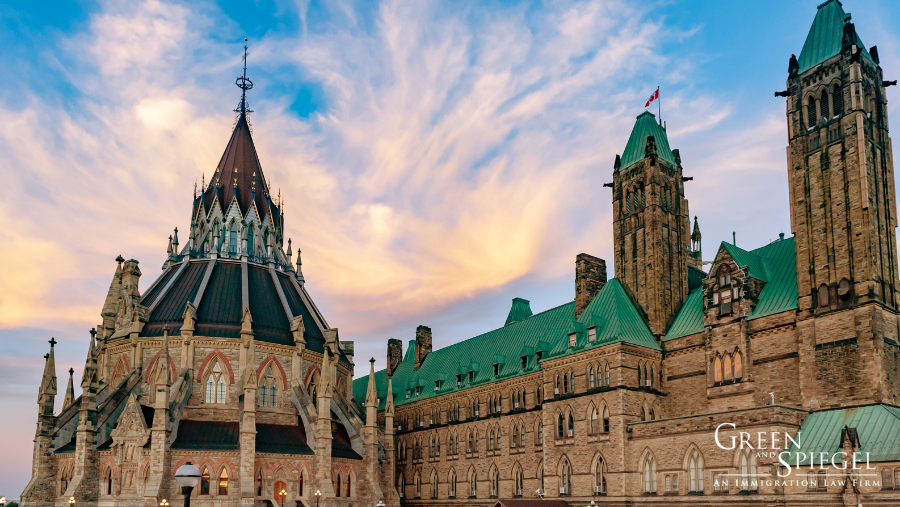
Family reunification is one of the main pillars of immigration to Canada, and an underlying principle that guides all immigration policy decisions. In 2023, Immigration, Refugees and Citizenship Canada (“IRCC”) reinforced their commitment to this principle, reiterating that “[f]amilies are meant to be together, especially during life’s big moments like moving to a new country. That is why Canada is working to help families reunite more quickly and easily and support themselves once in Canada.”[1] For both Canadians and newcomers submitting an application for immigration to Canada on the basis of family reunification, it is important to understand the ways in which IRCC delivers on this promise to reunite families, the most relevant being Spousal Sponsorship applications.
If you and your family members are considering pursuing a Family Class Sponsorship application, understanding the program requirements and processing instructions is critical to ensuring a successful application.
Who can sponsor
To Sponsor an eligible partner, the sponsor must meet the following eligibility criteria:
- Be at least 18 years old;
- Be a Canadian citizen, permanent resident, or a person registered in Canada as an Indian under the Indian Act;
- Be residing in Canada, unless the sponsor is a Canadian citizen who can show intention to relocate to Canada upon the application being finalized;
- Be able to prove they can provide for the basic necessities of their partner (and any accompanying dependents), including not being in receipt of social assistance for reasons other than a disability; and
- Not be subject to any bars to sponsorship.
Who can be sponsored
An eligible sponsor can sponsor their spouse, common-law partner, or conjugal partner, regardless of gender. Each of these categories of Family Members have specific criteria which must be shown:
- Spouse: the couple must prove they are legally married. Marriages will be recognized when the marriage was either (1) legally performed in Canada, or (2) legally recognized in the county where it took place and in Canada.
- Common-law partner: the couple must prove they’ve been living together for at least 12 consecutive months in a conjugal, or “marriage-like” relationship.
- Conjugal partner: the applicant must be living outside Canada and the couple must prove that (1) there is a significant degree of attachment between them, and (2) they’ve been in a genuine relationship for at least 12 months where marriage or cohabitation isn’t possible. This category is often used where there is a legal impediment to marriage or establishing common law status.
While the assessment of the of legality of a marriage can be determined based on the laws of Canada and the jurisdiction where the marriage was performed, the assessment of common law and conjugal partner status is a question of fact, determined following an extensive review of evidence demonstrating the relationship.
A sponsor may also sponsor their partner’s children who are under 22 years of age, and may sponsor their partner’s grandchildren provided that the sponsor meets an income threshold based on their family size.
A Genuine Relationship
Once it is determined that the sponsor and applicant fall within one of the above scenarios, IRCC will review the relationship to determine whether it is genuine. A genuineness assessment requires an officer draw a conclusion to determine whether the relationship:
- is not genuine; or
- was entered into primarily for immigration purposes.
If the officer has concerns about the genuineness of a relationship, the couple may be invited to address the concerns by providing additional documents, or by attending an interview either together, or separately. While the assessment of genuineness is always based on the documents submitted as proof of the relationship, judicial decisions from the Canadian Courts provide significant guidance on factors which IRCC can examine to determine whether overall, the relationship is genuine. The importance of this assessment highlights the critical function which a Canadian immigration lawyer, who will be well versed in the consideration of these factors and typical ‘red flags’, can play in your sponsorship application.
Once a couple has gathered the documents required in support of a spousal sponsorship, an important consideration is which sponsorship route to pursue:
Family Class: Outside of Canada Sponsorship
A Family Class Sponsorship application allows, but does not require both the sponsor (if a Canadian citizen) and the applicant to reside outside of Canada. Sponsors living abroad must demonstrate that they will live in Canada when their partner becomes a permanent resident.
At the time of this blog, the average processing time for a Family Class Sponsorship (overseas) application is approximately 12 months, although this standard does not apply to complicated cases. Once the sponsor’s eligibility is assessed, the application is generally sent to the responsible visa office abroad for processing. As certain visa offices are more well versed in local customs and practices, additional documents may be requested at this stage.
In this scenario, there is generally a right to appeal a refusal to the Immigration Appeal Division of the Immigration and Refugee Board. This appeal process is beneficial as applicants are able to provide reasons why the negative decision was incorrect.
Spouse or Common-Law Partner in Canada Class (SCLPC): Inside of Canada Spousal Sponsorship
This application requires both the sponsor and their partner to be residing together in Canada. If there is any interruption to their residency in Canada, such as the applicant being denied re-entry to the country after a period of international travel, the application could be cancelled as abandoned. While, under the SCLPC a partner must have valid immigration status at the time of submission, IRCC has enacted a Public Policy to overcome this requirement for certain foreign nationals who:
- have overstayed their previous temporary resident status;
- have worked or studied without authorization;
- have entered Canada without the required visa or other document; or
- have entered Canada without a valid passport or travel document (as long as they have valid documents by the time they are granted permanent residence).[2]
At the time of this blog, the average processing time for the SCLPC application is approximately 10 months.
Under this category, if the application is refused, there is no right to an Appeal. An applicant can seek leave for judicial review from the Federal Court. If the Federal Court decides to review the case, it will assess the reasonableness of the decision, a much more limited scope than an appeal to the IAD.
Note that under both categories, couples intending to reside in the Province of Quebec are subject to a complementary assessment by the Ministry of Immigration, Francisation and Integration and processing times are longer.
What happens in the meantime?
IRCC strives to support Canadians and newcomers by reuniting families faster and allowing them to work and support themselves more efficiently once they are in Canada, by releasing the following policies:
- Under either stream, an applicant who is residing in Canada with their partner may be eligible to apply for an open work permit upon receiving an acknowledgement of receipt letter from IRCC.
- Applicants under the Family Class can benefit from faster Temporary Resident Visa processing times for spousal applicants, with most applications being processed within 30 days.
Next Steps
As IRCC maintains its focus on family reunification, intake for the spousal sponsorship programs has never been higher. Over the next three years, Canada aims to welcome on average, 83 000 individuals annually under this pathway. [3] However, while generally the preferred pathway forward for those with a Canadian partner, the spousal sponsorship application remains a document-heavy process with many nuances. To avoid delays or refusals under this category, applicants should ensure they have a proper understanding of the requirements and process, which they can gain by contacting an authorized immigration representative at Green and Spiegel LLP.
[1] Immigration, Refugees and Citizenship Canada. (2023, May 26). Canada is reuniting loved ones through new immigration measures new measures also address labour shortages … Canada.ca. https://www.canada.ca/en/immigration-refugees-citizenship/news/2023/05/canada-is-reuniting-loved-ones-through-new-immigration-measures-new-measures-also-address-labour-shortages-in-canada.html
[2] Immigration Refugees and Citizenship Canada. (2018, March 12). Government of Canada. Canada.ca. https://www.canada.ca/en/immigration-refugees-citizenship/corporate/mandate/policies-operational-instructions-agreements/immigration-refugee-protection-act-spousal-policy.html#3
[3] Ibid.






